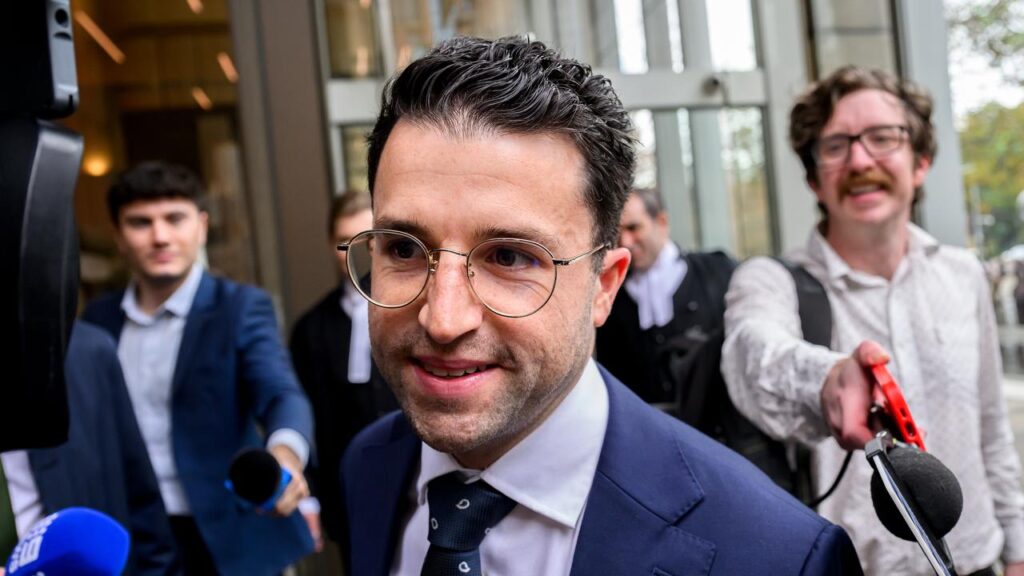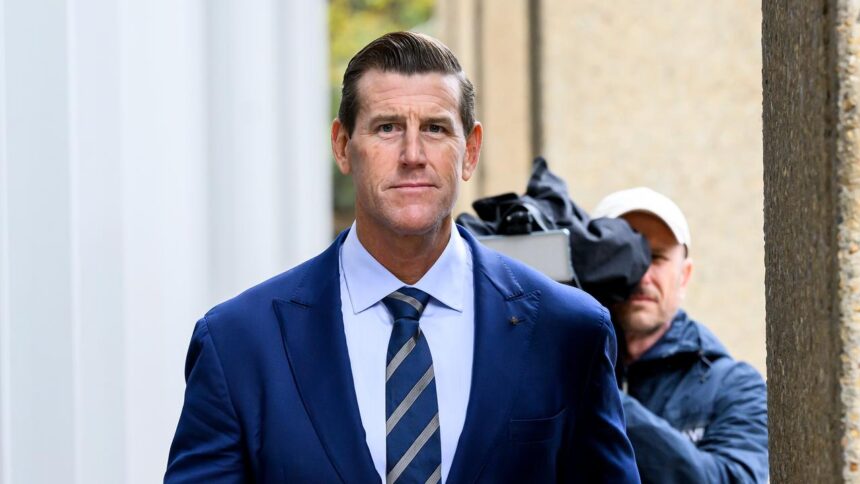Federal Court Unanimously Upholds Damning War Crimes Allegations
Disgraced war veteran Ben Roberts-Smith has vowed to continue fighting allegations against him, announcing plans to take his case to the High Court of Australia after an appeal was dismissed. The appeal, lodged in response to damning media reports, was unanimously rejected by the Federal Court, upholding findings that he had likely committed war crimes during his deployment in Afghanistan.
“I continue to maintain my innocence and deny these egregious, spiteful allegations,” Roberts-Smith declared in a written statement. “Sunlight is said to be the best disinfectant, and I believe one day soon the truth will prevail.”
Legal Battle Stems from Failed Defamation Lawsuit
The Ben Roberts-Smith war crimes High Court appeal follows the unsuccessful defamation suit he filed against Nine newspapers and investigative journalists Nick McKenzie and Chris Masters. The reports, first published in 2018, alleged Roberts-Smith was responsible for the unlawful killings of four unarmed Afghan civilians.
In 2023, Justice Anthony Besanko found the war crime allegations substantially true. The judge’s findings included shocking details: Roberts-Smith had allegedly machine-gunned a man with a prosthetic leg and then encouraged others to use the leg as a drinking vessel. The court also found he had ordered the killing of an elderly prisoner and kicked another off a cliff.
Appeal Judges Back Original Ruling With Unanimity
After a 10-day appeal hearing in February 2024, Justices Nye Perram, Anna Katzmann, and Geoffrey Kennett affirmed the original ruling. “We are unanimously of the opinion that the evidence was sufficiently cogent to support the findings that the appellant murdered four Afghan men,” the panel stated in a judicial summary.
Their full written reasoning is expected to be published in the near future, further elaborating on the rationale behind the damning verdict. The decision not only represents a significant blow to Roberts-Smith’s legal efforts but also intensifies the public spotlight on his military conduct.

Nine Celebrates Ruling as Victory for Journalism and Accountability
The response from Nine and its legal team was one of celebration. “Today is also a great day for investigative journalism and underscores why it remains highly valued by the Australian people,” said Tory Maguire, managing director of Nine Publishing, calling McKenzie’s reporting “outstanding.”
Journalist Nick McKenzie, who played a leading role in exposing the alleged war crimes, echoed a stern call for accountability. “Australian authorities must hold Ben Roberts-Smith accountable before our criminal justice system,” he urged. “It should not be left to journalists and brave soldiers to stand up to a war criminal.”
Potential Criminal Charges Loom After Civil Defeat
Despite the damning rulings, Roberts-Smith maintains his denial of any wrongdoing. He has not been criminally charged, but the failed appeal opens the door to further scrutiny. Legal experts suggest the decision may accelerate potential criminal investigations by the Australian Federal Police and the Office of the Special Investigator.
The Ben Roberts-Smith war crimes High Court appeal now enters a new phase as he prepares to challenge the Federal Court’s findings. But success may prove elusive; he faces a staggering legal bill that could exceed $30 million — not only from the original defamation case but also from the 10-day appeal he just lost.
From Hero to Disgraced Veteran: A Shattered Legacy
Roberts-Smith was once celebrated as a national hero. Awarded the Victoria Cross in 2011 for acts of bravery in Afghanistan, he rose to national prominence. His heroic image was further solidified when he was named Australian Father of the Year, yet that reputation has since unraveled under the weight of war crime allegations.
The 2018 exposé by Nine newspapers alleged a dark pattern of unlawful violence, abuse of power, and intimidation by the former SAS corporal. These allegations extended beyond battlefield actions and included reports of him bullying fellow soldiers, a claim that Justice Besanko also found to be substantiated on the balance of probabilities.
Court Found Participation and Orchestration of Killings
According to Justice Besanko’s original decision — now upheld — Roberts-Smith not only participated in unlawful killings but orchestrated them. On one occasion in 2009, during a raid on a compound known as Whiskey 108, he ordered the execution of an elderly detainee to initiate a rookie soldier in combat.
In another harrowing incident, the court found Roberts-Smith kicked a handcuffed Afghan prisoner off a cliff before ordering his execution. These findings, though based on civil standards of proof, paint a deeply troubling picture of one of Australia’s most decorated soldiers.
Rejected Claims of Legal Breach and Final Appeal Strategy
The appellate court also dismissed Roberts-Smith’s effort to reopen his case based on claims that McKenzie had unfair access to confidential legal strategies. The court found no merit in these allegations and declined to reconsider the appeal.
The implications of the Ben Roberts-Smith war crimes High Court appeal stretch beyond his personal fate. The case has sparked national conversations about military accountability, journalistic integrity, and the limits of heroism.
Final Legal Hurdles and a Nation Watching Closely
While his public standing has drastically fallen, Roberts-Smith’s determination to clear his name remains. His legal team is now preparing to take the matter to the High Court, Australia’s highest judicial authority, in a last-ditch effort to overturn findings that have forever altered his legacy.
The next phase will likely involve intense legal scrutiny, and the nation will watch closely as Roberts-Smith continues his fight. But the Federal Court’s firm dismissal of his appeal signals that any reversal will face substantial judicial hurdles.
With a legal battle that has already stretched years and incurred immense financial and emotional costs, the Ben Roberts-Smith war crimes High Court appeal represents his final opportunity to challenge a verdict that has shaken public trust in military honours and tested the boundaries of civil justice.
As the case progresses, it underscores not just the gravity of the allegations but also the crucial role of investigative journalism in uncovering truths that institutions may struggle to confront. Whether the High Court will entertain the appeal remains to be seen, but the public conversation surrounding this saga is far from over.






